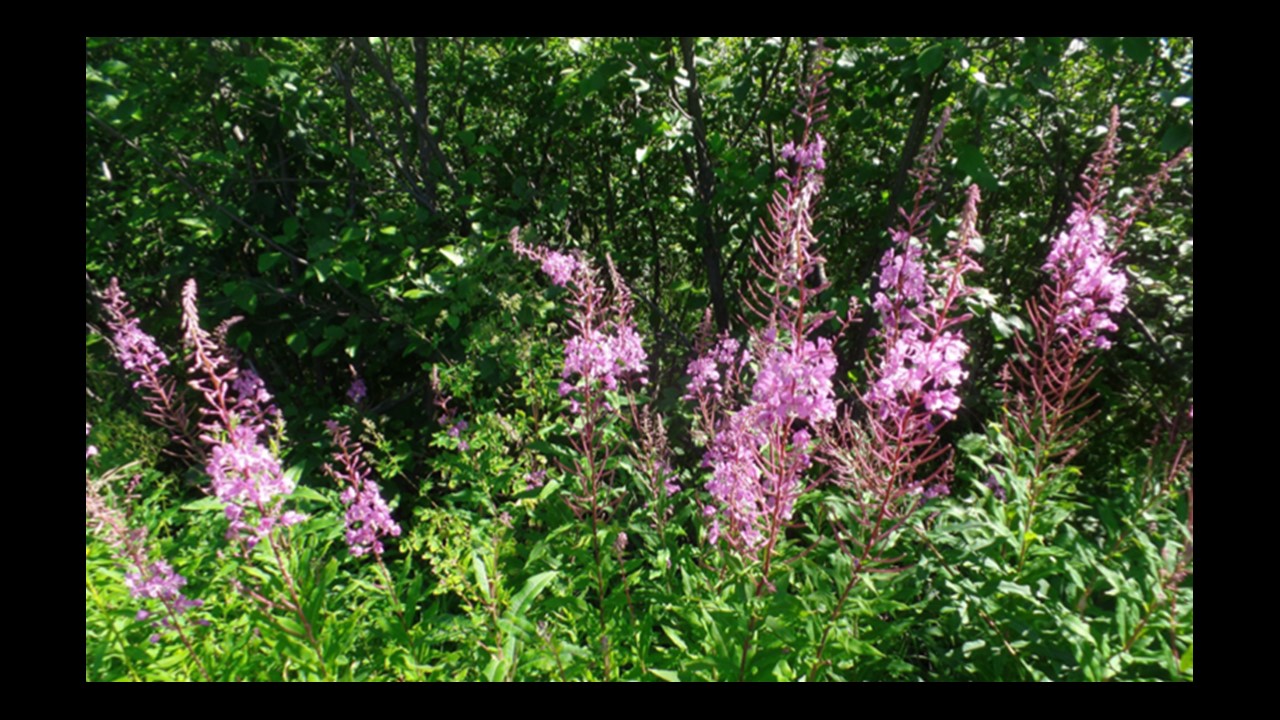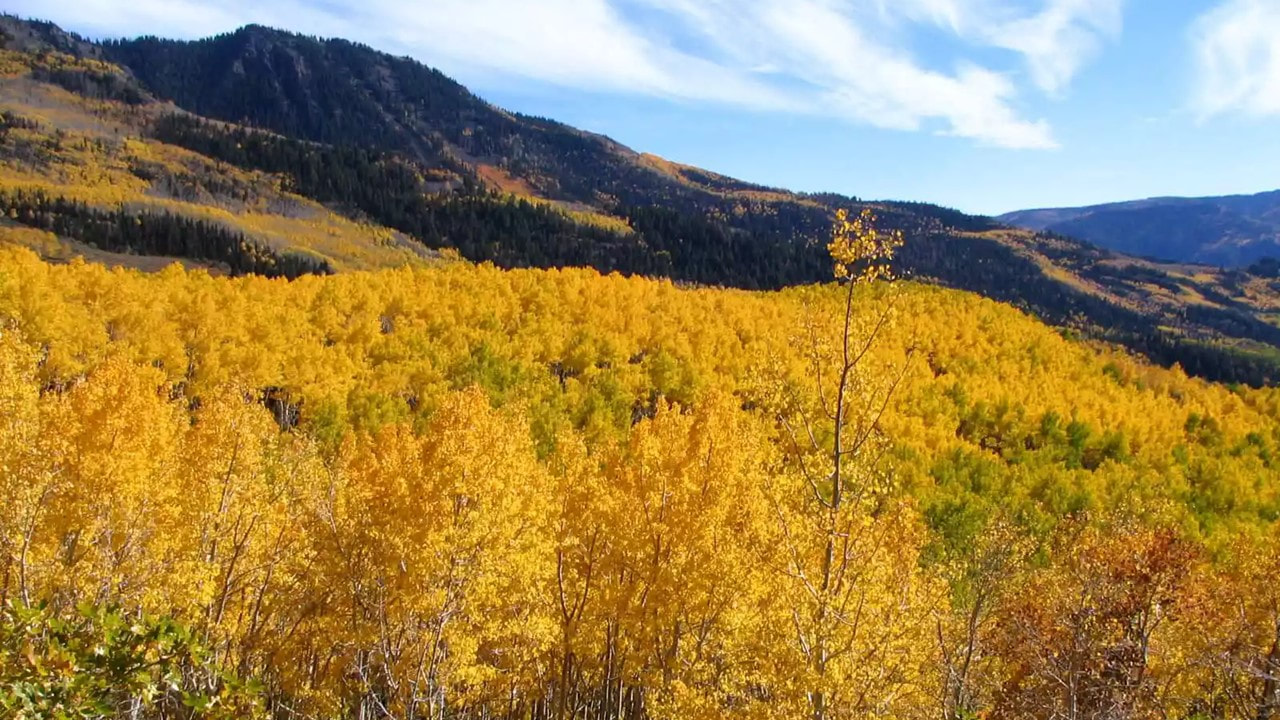Scott Anderson1 Samuel 1:4-20 † 1 Samuel 2:1-10 † Hebrews 10:11-14, 19-25 † Mark 13:1-8 You can view a video of the service and sermon here. Franz Dolp was a professor of economics at Oregon State University when he began, perhaps, the greatest work of his life. As a young father and professor, his marriage had eroded, and his dream of creating an Oregon homestead with it. When he drove away from the farm intended for “till death do us part,” it was with the good-bye blessing, “I hope that your next dream turns out better than your last.”[i] He eventually found his way to forty acres on Shotpouch Creek. This logged-out, chaotic hot mess of vine maples, leggy hardwoods, and thorns was in the same Oregon coast mountains where his grandfather had made a hardscrabble homestead. In his journal, Franz wrote that he had “made the mistake of visiting the farm after it was sold. The new owners had cut it all.” I sat among the stumps and the swirling red dust, and I cried. When I moved to Shotpouch after leaving the farm, I realized that making a new home required more than building a cabin or planting an apple tree. It required some healing for me and for the land.”[ii] “My work [at Shotpouch] grew out of a deeply experienced sense of loss,” he wrote, “the loss of what should be here.”[iii] Robin Wall Kimmerer tells the story of how Franz Dolp, a wounded man, moved to live on wounded land at Shotpouch Creek in her book Braiding Sweetgrass, in a chapter she titles “Old Growth Children.” Franz wrote in his journal, “These forty acres were to be my retreat, my escape to the wild. But this was no pristine wilderness.” The land was razed by a series of clear-cuts over the years—first the venerable old-growth forest and then its children. No sooner had the Doug firs grown back than the loggers came for them again.[iv] Everything is different after land is clear-cut. Sunshine is abundant, the soil is broken open and unstable, temperatures rise, the humus blanket gives way to exposed minerals. Forest ecosystems have tools for dealing with disturbances, of course. Early plants get to work on damage control, quickly.
0 Comments
Scott AndersonIsaiah 25:6-9 † Psalm 24 † Revelation 21:1-6a † John 11:32-44 You can view a video of the service and sermon here. It took me about two minutes the other day to remember the name for these. I could see them in my mind’s eye, and I knew they were in the fridge right next to me, but I was determined to flex those memory muscles and work past this mind block. Every time the words came close to my consciousness, stupid broccoli kept getting in the way. Bru, bru, bru…broccoli.
No! Finally, I got it! I conquered! “Brussel sprouts!” I shouted to Barb who I suspect, by that point, was looking a bit anxious. It was almost as if I had to look out of the periphery of my brain to do it, but I prevailed! Maggie Breen1 Samuel 15:34-16:13 † Psalm 20 † 2 Corinthians 5:6-10, 14-17 † Mark 4:26-34 You can view a video recording of this sermon here.
Isn’t that the case with so much of what we experience? We take something in, and we react, sometimes quietly, sometimes less so, but so often out of these hard-earned unspoken assumptions that have this silent power to affect our lives and the lives of others.
Rosebay Willowherb, for me, used to be a sign of something bad and only something bad. It grew in my family’s yard starting in the late spring and early summer each year. Those stubborn stems with their long, thin, rough, dark green leaves that seemed to me to spiral like a screwdriver or a drill making its way through the low growth. And then as summer moved on those loud pink flowers, one atop the other, clamoring for the sky. And bees, lots of bees, would hang out in that slanting swath of pink and then the flowers would turn to these long thin seed capsules that would split open seemingly overnight to reveal this tangled mess of tiny, almost invisible brown seeds hidden in a mass of silk hairs that would carry them off in clouds. Scott AndersonIsaiah 25:6-9 † Psalm 118 † 1 Corinthians 15:1-11 † Mark 16:1-8
A video version of this sermon can be found here. When I was young, we’d often go to the Saturday night races at the Tri-Cities raceway. We’d have a big group from the church that would gather in the stands of the unique 3-corner half-mile, high-bank track that would come roaring to life those summer evenings. Every now and then the late-model NASCAR circuit would come to town, with their powerful cars and big sponsors. You could tell the difference between them and the local racers that raced most Saturdays because they had those wide, sticky racing tires all around the car. The local racers, on the other hand, only had one of the big tires—on the front, right wheel, the outside wheel as the cars were always turning left around the track. You could tell the difference because of the tire, and the chaos that was much more common with these local racers. Now, this was especially true when, on some nights, the raceway held a special heat, just for the mechanics. This was the only time the mechanics would replace the regular drivers behind the wheel, and that was probably for the best. The mechanic heats were, well, chaos. Pandemonium. They were all over the track, and off the track. The bumps and scrapes and spin outs that often occurred with the aggressive driving on those nights was multiplied exponentially when the mechanics got behind the wheel. You might have thought it would have been just the opposite—that these mechanics who spent all their time fixing these vehicles would be the most careful, but, let me assure you, this was not the case! Not in the least. Did I use the word pandemonium already? How about chaos? Bedlam? Well, I’ve developed a theory about this that I think plays out in other areas of life as well. Let’s see what you think. I suspect that these mechanics were just, plain and simple, terrible drivers. I mean terrible—at least compared to the racers who rightly belonged behind the wheel. But that’s not the part of the theory I wanted to run by you. This is the part: Scott AndersonIsaiah 40:21-31 † Psalm 147 † 1 Corinthians 9:16-23 † Mark 1:29-39
A video version can be found here. I need this word today. I need a reminder that this life, this faith, this God is so much bigger than I can imagine and even hope for. Over the years as I monitor the ebb and flow of my own faith, I’ve noted that moments in which it feels—to me, at least—that we are coming out of crisis into something that seems heavier with possibility, my own emotional well-being seems to move in the opposite direction. I struggle more. Doubt more. I wonder how it works for you. So I need this good word today. I need Isaiah’s rhetorical flourish: 21Have you not known? Have you not heard? Has it not been told you from the beginning? Have you not understood from the foundations of the earth? Isaiah just piles it on, inundates us with reminders of what should be obvious to any of us who have paid much attention, who have taken the time to stop and pray as Jesus does in the midst of the swirl of activity and demand. Scott Anderson1 Samuel 3:1-10 † Psalm 139:1-6, 13-18 † 1 Corinthians 6:12-20 † John 1:43-51
A video form of this meditation can be found here. How do we hear the voice of God? How do we recognize the voice of truth when it speaks? How do we understand what we see with our own eyes, and the truth of it? I suspect this is one of the most challenging aspects of the current moment. As we watch the crescendo of right-wing domestic terrorism, shaped and fueled as it has been by mistruths and lies, spreading into all institutions and corners of society. What hope do we have to hold out for our better angels and a future that is truer and safer and more equitable when our own perspectives are dismissed by those who seem to live in entirely different plausibility structures? And on what basis can we be sure that our perspective is fundamentally better than that of these our current president and his supporters call patriots? While I hold to my own convictions, perhaps more strongly now than ever, I know my own perspectives are sometimes incomplete and flawed. I keep thinking of a viral video I suspect most of us have seen of capitol police officer Eugene Goodman making his way up the capitol steps with dozens of rioters menacing him.[i] Scott Anderson2 Samuel 7:1-11, 16 † Luke 1:46b-55 † Romans 16:25-27 † Luke 1:26-38
A video version of this sermon can be found here. Would it surprise you to know that this story from Second Samuel, this story of the victorious King David, now settled in his reign, now looking to build a permanent temple for God did not actually come together at a time when “the king was settled in his house and the LORD had given him rest from all his enemies around him”? Would it surprise you to know that it came about much later, during captivity in Babylon, when the temple that David’s son Solomon ultimately built for the LORD lay in ruins along with much of the civilization Israel had known at its peak, when the best and the brightest and the most privileged of Israel’s citizens had been forced to resettle as refugees in a foreign land? Would it surprise you to know that it came about when there was no rest, no house, and no king?[i] Perhaps it doesn’t surprise you. Perhaps it surprises you no more than knowing the story of Mary and the angel Gabriel was written down a full generation or two later, at a time when this one whose birth is foretold, this Jesus the Messiah had been executed as an enemy of the state and the church, and this miraculous child John, of the eighty-something year-old Elizabeth, had been beheaded, and when the very structure of Jewish life that serves as the backdrop to this story had been undercut, when there was once again no rest, no house, and no king. What is it about this hope of ours, that it seems to thrive when things are unfinished, that it seems to flourish most in trouble, in suffering, and in need? What is it about this mysterious faith of ours, that it is strongest, according to Romans, when revealed after long ages of being kept secret? What is it about this love of ours, that it is made perfect in weakness? Scott AndersonIsaiah 61:1-4, 8-11 † Psalm 126 † 1 Thessalonians 5:16-24 † John 1:6-8, 19-28
A video version of this sermon can be found here. Just about every Christmas season I return to W. H. Auden’s Christmas long poem “For the Time Being.” I’m not entirely sure why. It isn’t a particularly efficient or even rewarding exercise even as I am drawn to sputtering along in my reading. I do suspect it holds a certain inspiration for me, or at least the promise of it that I am at any moment apt to tap into a reserve of insight and understanding. Perhaps my motivation is wrapped up in some faulty psychology that supposes because it is thick, because it is hard work to understand that it must be worth it. I do get that possibility, so you armchair psychologists can just sit on your hands for the moment. In fact, I think it is the other side of that psychological coin that has something more to do with this strange Advent season in this extraordinary “coronatide” time. It’s the audacity of this time that captures me. It’s the foolishness of this faith that imagines we can mobilize the machinery of the hope required to cut a path through mountains and valleys to make the way straight and wide, when it all seems so, well, not that, so anything, but passable. Foolish indeed. Faith, like love, is never easy. Scott AndersonJonah 3:10-4:11 † Psalm 145:1-8 † Philippians 1:21-30 † Matthew 20:1-16
You can find a video copy of this sermon in the context of worship here. They are both right, aren’t they? This is no case of fake news. It’s just a problem with perception and location and what’s fair. The laborers who were hired first thing in the morning, who went out and put in their twelve hours under the hot sun cannot abide that they are paid the same as those last to join the party, who work an hour at best—and get just as much. It is not fair. Or, to be more precise, it is not equitable. This is true. And yet, the landowner has an equally valid point, doesn’t he? Did I not keep our agreement? We negotiated for the usual day’s wage at the beginning. This is what I’ve given you. How have I wronged you? Scott Anderson1 Kings 19:9-18 † Psalm 85:8-13 † Romans 10:5-15 † Matthew 14:22-33
*A video form of this sermon can be found here or you can see the entire liturgy here. In the Fishlake National Forest, on the western edge of the Colorado Plateau there is a colony of quaking Aspen that is an estimated 80,000 years old. Now, were you walking in the midst of it right now rather than listening to me, it would not be readily apparent. There is no tree in the grove that is anywhere near that age. Cut one down and you might count 80 rings, 80 seasons of growth. Maybe more. Maybe less.[i] But underground, the eighty-year-old trunks are 80,000, a 100,000 years-old if they are a day. Some scientists think even this is a huge undercount, suggesting the forest has been around for the better part of a million years. Every tree here has sprouted from a rhizome mass too old to date even to the nearest hundred millennia, they say. |
St. Andrew SermonsCategories
All
|






 RSS Feed
RSS Feed